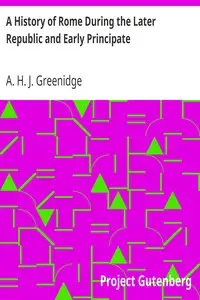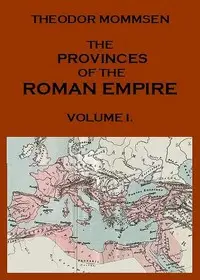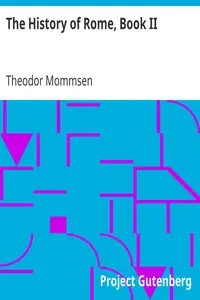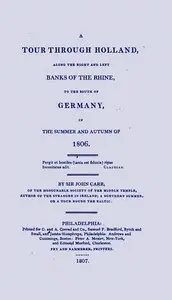"The History of Rome, Book IV" by Theodor Mommsen is a recounting of the dramatic Revolution period in Rome, exploring the major shifts and political challenges that marked the time of the Gracchi brothers, internal reforms, and external conflict. The story begins by showing the challenges faced by countries ruled by Rome, pointing out the problems of ruling, conflicts and the resistance in places like Spain, showing the interactions with people such as the Lusitanians and Celtiberians. This shows how these struggles would lead to big changes within the Roman Republic itself. The beginning of the book highlights the differences found in annexed areas and with those opposing Rome, giving insights into the complicated power struggles.
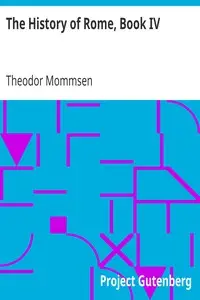
The History of Rome, Book IV The Revolution
By Theodor Mommsen
Witness the clash of cultures and the fight for power as Rome faces resistance from its conquered lands, setting the stage for revolution.
Summary
About the AuthorChristian Matthias Theodor Mommsen was a German classical scholar, historian, jurist, journalist, politician and archaeologist. He is widely regarded as one of the greatest classicists of the 19th century. He received the 1902 Nobel Prize in Literature for his historical writings, including The History of Rome, after having been nominated by 18 members of the Prussian Academy of Sciences. He was also a prominent German politician, as a member of the Prussian and German parliaments. His works on Roman law and on the law of obligations had a significant impact on the German civil code.
Christian Matthias Theodor Mommsen was a German classical scholar, historian, jurist, journalist, politician and archaeologist. He is widely regarded as one of the greatest classicists of the 19th century. He received the 1902 Nobel Prize in Literature for his historical writings, including The History of Rome, after having been nominated by 18 members of the Prussian Academy of Sciences. He was also a prominent German politician, as a member of the Prussian and German parliaments. His works on Roman law and on the law of obligations had a significant impact on the German civil code.



